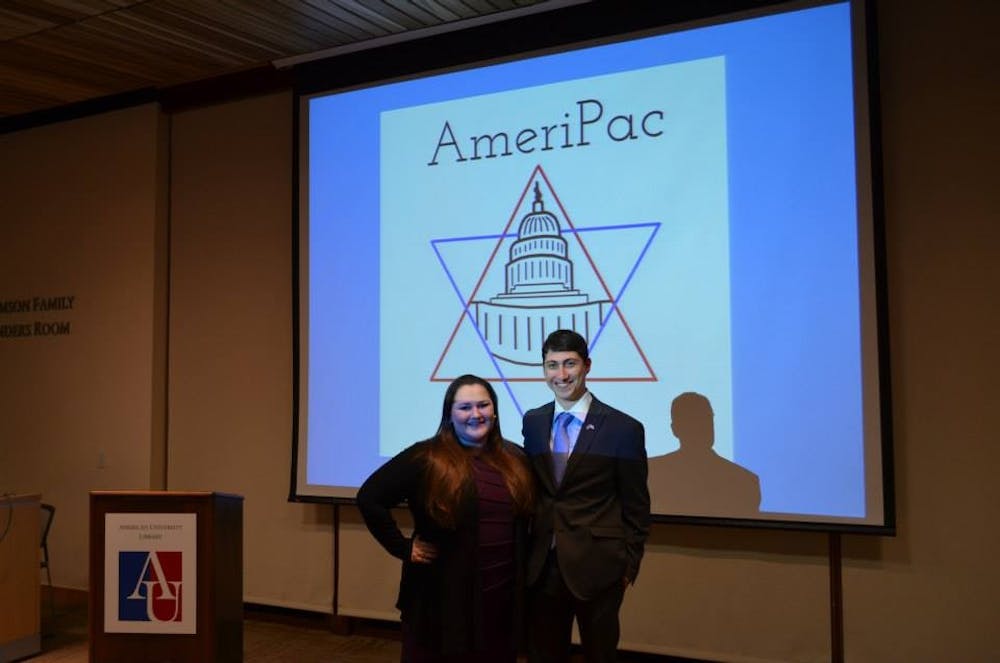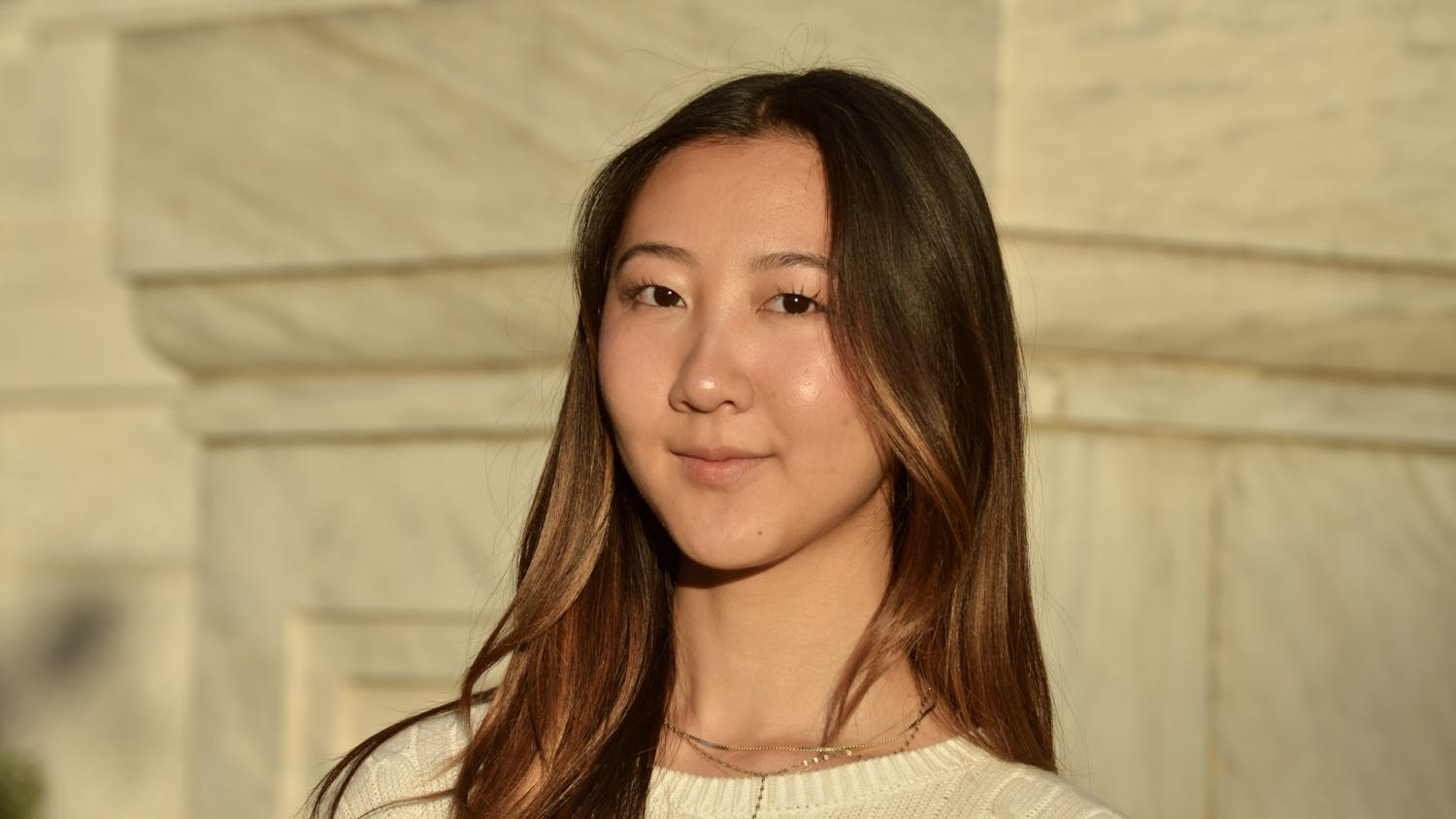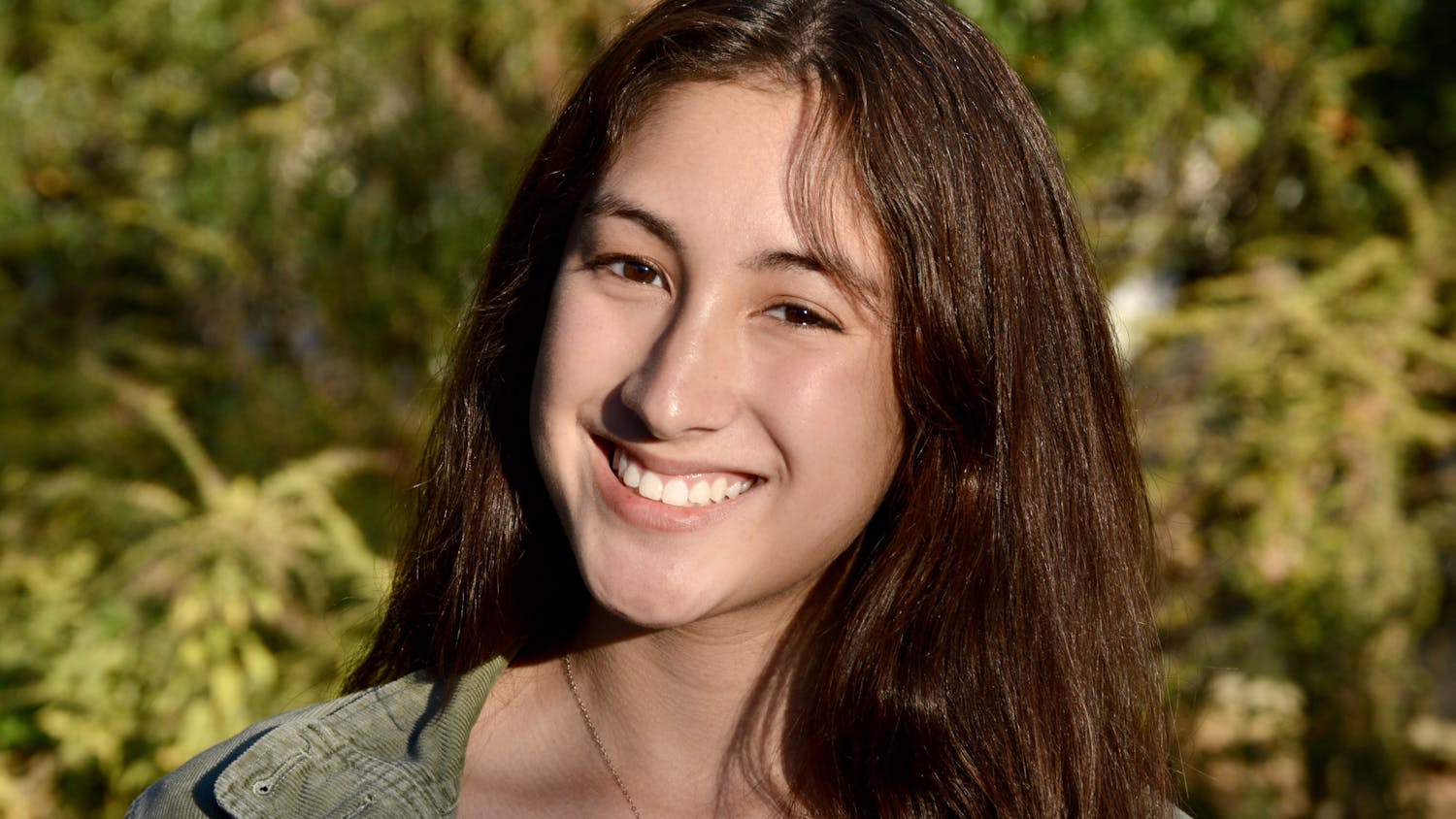On AU’s campus where activism and advocacy run rampant, partisan politics and opposing opinions are the status quo. At the first annual AmeriPac Leadership Dinner, however, student leaders gathered to voice their bipartisan, unwavering support for a strong US-Israel relationship. The leadership dinner headed by AmeriPac, the pro-Israel political group on campus, featured speeches by Student Government President Patrick Kelly, College Democrats President Alex Hoffman, College Republicans Vice President Zoe Crain and Joshua Hantman, senior adviser to the Ambassador of Israel.
All three student leaders spoke eagerly on the importance of an unshakable US-Israel relationship. The enthusiasm of Crain and Hoffman made it very clear that while the political parties they represent have opposing opinions on most fronts, Democrats and Republicans are able to cross the aisle to agree on the importance of the US-Israel relationship.
Hantman delved into the question most people ponder: why is this relationship so vital to the security of both nations? Hantman proved that the many justifications to answer this question are legion.
The young, immigrant society that President Truman took only 11 minutes to recognize in 1948 has flourished immensely in the past 65 years. Bilateral cooperation to deal with military and nonmilitary challenges has grown accordingly. The strategic military relationship under President Obama has never been stronger with unprecedented intelligence sharing.
To be sure, this alliance is not one-sided. The U.S. has provided Israel with indispensable diplomatic, economic and military support, helping Israel become a secure and viable nation. In return, Israel continues to help the U.S. deal with security threats by sharing intelligence on terrorism, nuclear proliferation and Middle Eastern politics. Together, the two governments have developed sophisticated military technology, such as David’s Sling and the Iron Dome Missile Defense System.
The political relationship between the U.S. and Israel is dynamic and thus, disagreements are inevitable. Right now, the biggest threat Israel faces is not at the border (Iran-backed Hizbollah to the north, Egypt to the west or Syria to the east) but rather Iran. Many questions during the dinner arose pertaining to Iran and Hantman answered these questions.
The goal of a deal with Iran, the foremost sponsor of terrorism, is to dismantle Iran’s military nuclear capability. Israel has the most to gain from a peaceful resolution with Iran and wants to see diplomacy succeed. What Israel and the United States disagree on is strategy. Israeli policy insists that a partial deal with Iran is a bad deal; this opinion is not shared by the P5 1. This interim deal is exactly that: partial. Iran, under this Joint Plan of Action , is still able to continue to develop its nuclear program. Specifically, Iran will continue with a range of test centrifuges at the Natanz facility. And these advanced centrifuges reduce Iran’s breakout time to only a matter of weeks.
President Obama and Prime Minister Netanyahu agree that Iran does not need the underground fortified Fordow facility, the Arak heavy water reactor or advanced centrifuges to have a limited, peaceful program. And while the interim agreement with Iran is currently championed by the foreign policy cognoscenti in Washington, no one believes this moratorium is permanent. The crippling sanctions in place before the deal were years in the making, and the concessions Iran is taking under the agreement can be reversed in weeks. That is why many in Congress believe that just as sanctions brought Iran to the table this past November, increased sanctions are the only way to keep Iran coming back to the negotiating table to arrive at a complete deal where Iran is not left with any residual capability of obtaining a nuclear weapon.
Hantman also covered topics pertaining to peace negotiations and how appreciative Israel is of Secretary Kerry’s efforts. He also provided us a candid understanding of this unicameral democracy, noting that the 120 members of the Knesset represent nearly every opinion in Israel. We also discussed social issues, specifically that gay rights in Israel are incomparable to any other country in the region because of Israel’s liberal democratic values.
The array of young student leaders from our campus further epitomized the relationship between the U.S. and Israel as we all gathered together Monday night for one cause. That being said, it isn’t always easy being Israel’s ally. The nation has many challenges it must address: negotiating Israeli-Palestinian peace, internal socioeconomic gaps, and Iran’s nuclear program.
However, amidst the meal of hummus and falafel, the student leaders recognized the value to America of the US-Israel relationship and that continued bipartisan strides make the prospect for peace in the Middle East all the more possible.
Mollie Adatto is a senior in the School of International Service.





